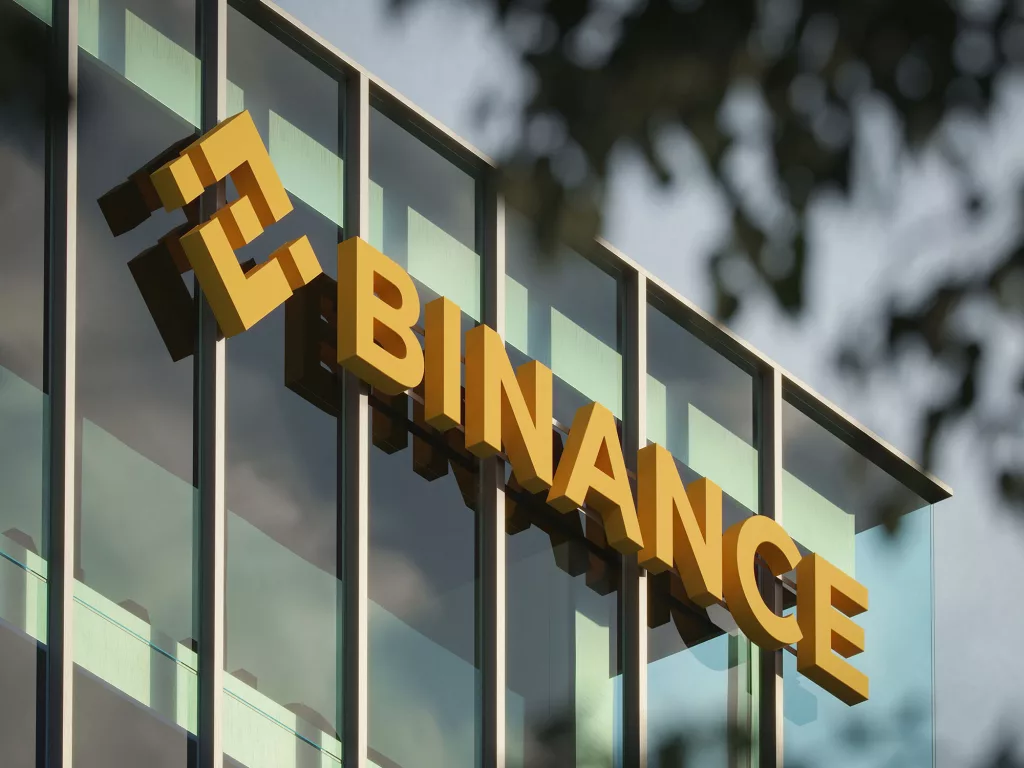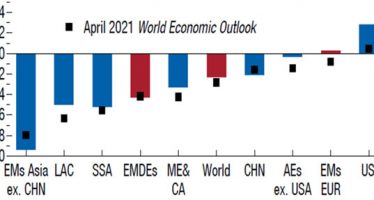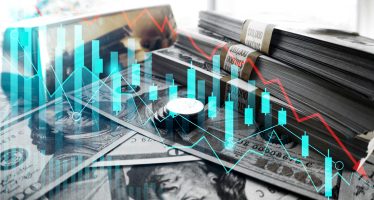Binance Teeters as Regulators Close-in on Troubled Exchange
Crypto is having another ‘moment’. Wim Romeijn takes a look for CFI.co…
Binance, the largest exchange for trading digital currency and its derivatives, is in distress. A dozen senior executives have left, and the company has fired 1,500 staff as trading volumes plummet.
US government agencies, from the Department of Justice to the Securities and Exchange Commission, are investigating possible dealings between Binance and black-listed Russian banks. The company is also being sued for allegedly operating an illegal exchange, compliance failures, money laundering, misuse of customer funds, and misleading regulators.

Binance denies the allegations, but has admitted “compliance missteps” — which it said had been addressed by a corporate restructure aimed at giving regulators clarity. The company doesn’t have a head office and its staff and offices are spread around the world. There are some 300 firms where founder Changpeng Zhao acts as majority shareholder, director, or officer.
In its mapping of Zhao’s business empire, crypto analytics company Inca Digital found no boundaries or distinction between Binance, its multiple subsidiaries, and their founder. Zhao is famous for micromanaging operations, down to personally signing-off on minor expenses for office supplies.
Zhao founded Binance in 2017, when the crypto universe was seen as a marginal domain inhabited mostly by geeks, and uninteresting to regulators. But as US customers flocked to Binance trading hubs in China and Japan, regulators began to take note. Almost in sync, prosecutors started preparing a crackdown on offshore platforms operating outside their jurisdiction — and at that time beyond regulation.
Cunning Plan
Binance devised a strategy to avoid lawsuits. It set up Binance.US, a bare-bones exchange granted nominal independence and a licence to use the relevant technology. Regulators have since concluded that Binance and Binance.US were more intertwined than had been reported, sharing staff, funds, and a stake in an affiliated crypto-trading entity.
That last issue alarmed investigators. Prosecutors say the collapse of the FTX exchange last November was caused by its “improper relationship” with allied trading firm Alameda Research.
The Binance bid to keep US regulators off its back seems to have backfired. If it can be shown — it’s a big “if” — that the company exercises control over Binance.US, the SEC could police the company’s entire business. That would put founder Changpeng Zhao in the crosshairs.
Before stepping down as the firm’s chief strategy officer in early July, Patrick Hillmann said he expected regulatory and law-enforcement issues to be settled out of court with “monetary penalties”.
That ship seems to have sailed. Regulators tightened the noose by tracing ownership of Binance.US to Zhao via various entities incorporated in the Cayman Islands, the British Virgin Islands, and Delaware.
Investigators have found Telegram chats of Binance.US CEO Catherine Coley, in which she instructs senior staff members to forward her progress reports on “what we think CZ [Changpeng Zhao] and Wei Zhou [Binance CFO] should know, so we can be in their good graces.” Coley left the company in early 2021.
Comatose Exchange
Largely as a result of the ongoing investigations, lawsuits, and pending enforcement actions, trading at Binance.US has mostly stopped. Before leaving the company in early September, CEO Brian Shroder reported that the exchange’s revenue had fallen by 70 percent this year.
During an online meeting, Shroder told staff that Changpeng Zhao would need to sort out regulatory matters — and either sell his shares or put them in a blind trust if Binance.US were to “resume its growth trajectory”. Otherwise, he said, the exchange would not be able to get the licences and banking relationships required for its survival.
Binance co-founder Yi He wrote to staff: “Every battle is a do-or-die situation, and the only thing that can defeat us is ourselves. We have won countless times, and we need to win this time as well.
Zhao, meanwhile, has hired a new legal team to handle the DoJ case. He promised to wind-down Binance’s indirect dealings with sanctioned entities in Russia. After the company downsized its business there — and Russia was one its most lucrative markets — the exchange continued to handle “considerable” ruble trading volumes through intermediaries.
This allows account-holders at sanctioned banks to turn their rubles into crypto. The tokens can then be swapped for hard currency at brokerages.
According to the Bank of Russia, the average monthly volume of peer-to-peer trades reaches $428m (£352m) at the official exchange rate. The US Treasury Department considers these transactions a potential means to evade sanctions. Though the deals take place outside the Binance exchange, they are facilitated by the platform, which charges a processing fee.
King Uncrowned
Perhaps feeling the increasing heat, Zhao has kept an unusually low profile, apparently reluctant to leave the United Arab Emirates, where he lives. Crypto world observers noted that the UAE doesn’t have a mutual extradition treaty with the US.
The US investigations and lawsuits may have torpedoed Zhao’s chance to be crowned the king of crypto. He reportedly declined a plea for help from a previous holder of the “title”: Sam Bankman-Fried, CEO of collapsed rival exchange FTX, who is currently awaiting trial in the US.
The prices of major cryptocurrencies stabilised after the folding of FTX, and Binance has struggled as its size and near-hegemony have drawn regulatory attention. Lawmakers in the US and Europe are determined to get a grip on the industry and stop its volatility from contaminating broader financial markets.
Crypto devotees worry that the sheer size and heft of Binance run counter to the philosophies of transparency and decentralised finance. In a meeting with employees, Zhao said he was “driven by freedom” and didn’t like “a lot of rules”.
Those values may yet prove his undoing.
You may have an interest in also reading…
Permanent Output Losses from the Pandemic
In the World Economic Outlook, published October 12, the International Monetary Fund (IMF) slightly lowered its forecast for global economic
Corporate Earnings Fine, Markets Not So Much: Seesawing Stock Markets Rattle Investors
And just like that… the party was over. Wednesday’s stock market rally, sparked by the dovish comments of US Federal
Northern Ireland Shilly-Shally has Experts Fearful of New Trade War
The UK’s disentanglement from the European Union has been a source of instability in international trade, and is now giving


















































































